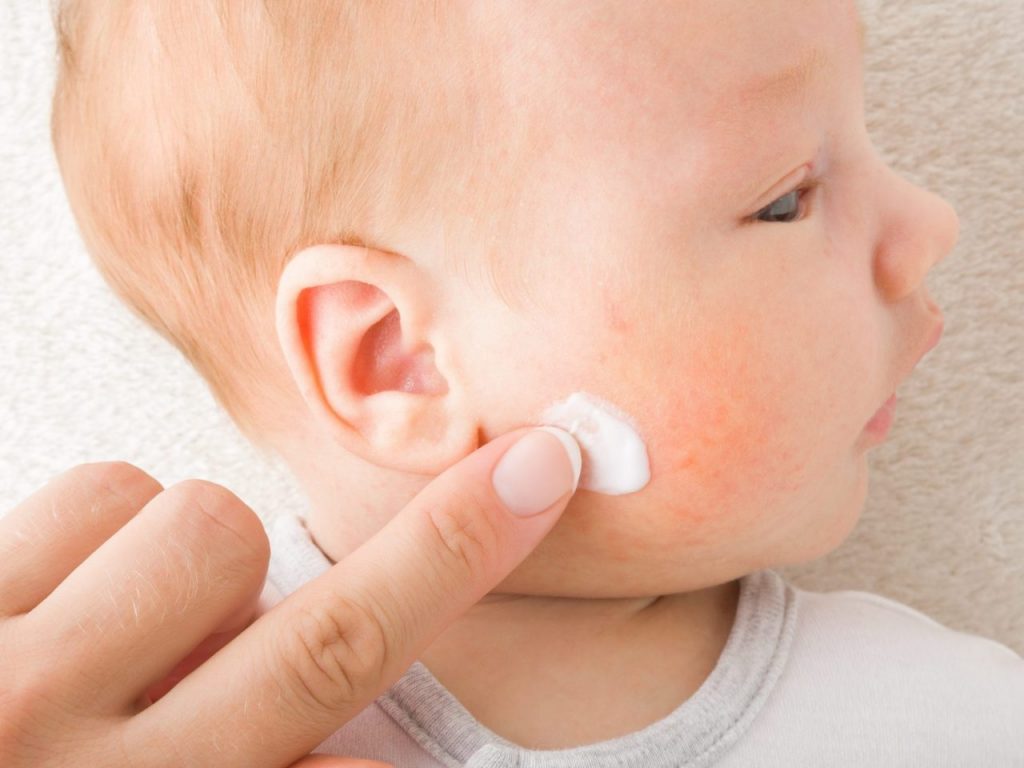The 6 golden tips to reduce eczema in your baby
Does your baby suffer from red eczema patches on the skin that itch terribly and are there crusts, bumps, cracks and flakes everywhere? Then we are talking about eczema. Because even though scratching seems to have a relieving effect, it only makes the itching and eczema worse. That is why we share the best tips and advice in this blog for treating eczema and reducing the itching in your baby.
“Eczema can have a huge impact on children and the entire family. Careful guidance and education can prevent and reduce so much suffering.”
- Thomas Rustemeyer, Professor and dermatologist.
1. Stop scratching
Eczema and itching often go hand in hand. Avoid scratching. Stopping scratching can help reduce both the eczema and the itching.
- Trim your mini's nails often. If your baby continues to scratch, the condition will continue to be perpetuated and the damaged skin will be continually damaged.
- You can put socks or mittens on your mini's hands. This will help prevent further damage to the skin.
- Find distraction for your child when he or she starts scratching. For example, read to him or her or play a game. This can also help to think less about the itch and therefore damage the skin less
- Tap gently on the skin, this will not damage the skin.
2. Prevent the skin from drying out
Dry skin is even more sensitive and gives even more itching. These tips below help prevent dry skin:
- Try to avoid or reduce the use of shampoo, soap and bubble bath.
- In frosty conditions, the skin needs extra protection, because the cold dries out the skin and causes itching.
- After showering, apply a greasy cream or cetomacrogol ointment to the skin.
- Oatmeal in the bath can help reduce itching and redness while restoring moisture balance.
Use as little water as possible to prevent the skin from drying out:
- Do not shower or bathe more than 2 or 3 times a week. When showering, make sure the water is not hotter than 37 degrees and do not stay in the bath or shower for more than 5 minutes.
- Also wash your hands as little as possible.
3. Use the cold
The cold can reduce the itching and can be applied in several ways. It is important to keep an eye on your little one for a rapid drop in temperature:
- Use an ointment that has a chilled base. This will have a calming effect.
- Wrap a cold element (cool pack, ice cube, bag of frozen peas) in a tea towel and place it on the itchy areas to reduce itching attacks
4. Choice of clothing
Your clothes are in contact with your skin for a large part of the day. This can also make itching worse
- Therefore, choose clothing with soft and natural fabrics such as cotton and silk.
- It is best to avoid abrasive clothing such as wool and non-breathable fabrics such as nylon. Loose clothing is a better choice.
- There is also eczema clothing, which is made from 100% natural materials: Lyocell and Zinc, which cares for and restores the skin.
5. Sunlight
A little sun can reduce the symptoms, but at the same time sunlight also removes moisture, which makes the dry skin even drier. Young skin is still very thin. Therefore, avoid the sun as much as possible between 10 a.m. and 4 p.m. Seek out as much shade as possible, but certainly do not forget to apply sunscreen in the shade.
6. Other tips
In addition to the above tips, below are some other tips that may help reduce eczema in your baby.
- Do not use fabric softeners as they often remain in clothing and can cause itching
- Stress and infections are not a direct cause, but can aggravate the symptoms by stimulating the immune system
- A cool bedroom with good ventilation works better. Sleep under one or more sheets instead of a duvet.
- Ensure good ventilation in general. Dry air can worsen eczema and therefore itching.
- Visit a dermatologist for personalized advice and a treatment plan that fits. Eczema can have a huge impact on children and the entire family. Careful guidance and education can prevent and reduce a lot of suffering.
Summary conclusion
Having eczema can be a very frustrating condition for both you and your mini. Fortunately, there are several tips and strategies that can help to alleviate the symptoms and soothe the skin. For example, hydrating the skin is extremely important and you should try to prevent dehydration. Avoiding irritants such as perfume, soap and shampoo is also important to protect the skin. As a final tip, it is wise to seek advice from a dermatologist for a personalized treatment plan to treat the severe symptoms. With the right approach and care, eczema can be well controlled and the symptoms can be reduced.


